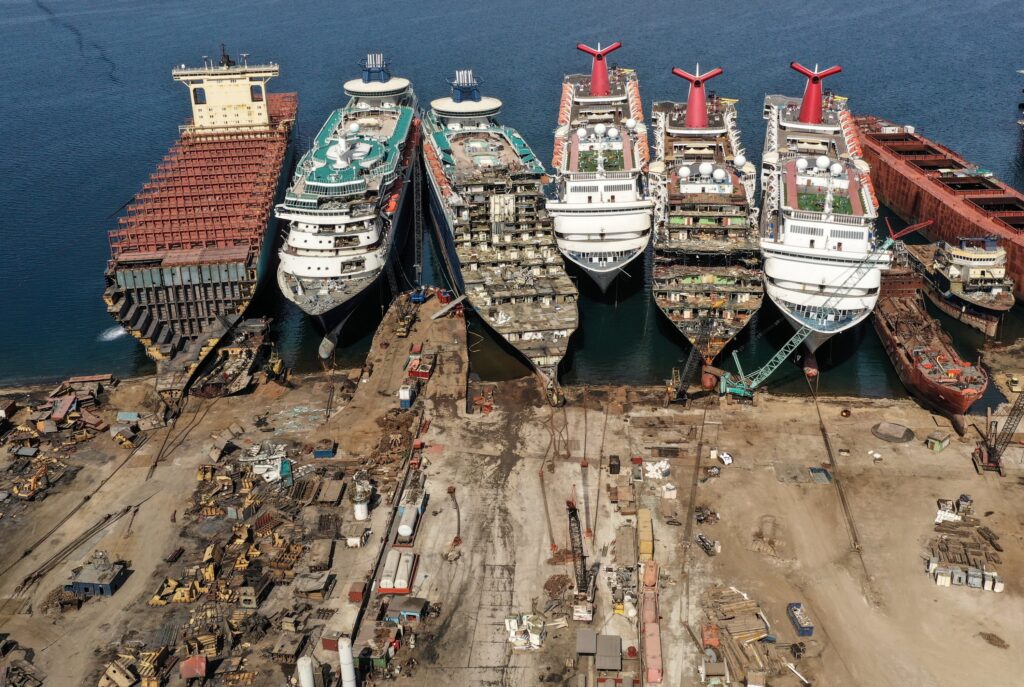In the past week, Bangladeshi ship recyclers didn’t acquire any new ships, but there have been two undisclosed deals involving the arrival of a handymax bulker and a car carrier at Chattogram beach.
Mariner Associates CTG, a shipowner based in Chattogram with a fleet of 12 handymax and supramax bulkers, sold the 45,700-dwt bulk carrier named Abdullah, which was built in 1996. This deal was done directly with Kabir Steel Re-rolling Mills, one of the few ship recycling facilities in Bangladesh that comply with the Hong Kong Convention.
Transforming Tides: Alang Ship Recycling Yard’s Evolution Towards Modernization
What’s interesting about this deal is that it was priced in Bangladesh’s local currency, the Taka (BTD), as reported by industry experts. This eliminated the need for Kabir to secure a letter of credit in a foreign currency, which can be challenging due to Bangladesh’s ongoing foreign currency crisis. The Abdullah was beached on September 15. Mariner Associates had owned the ship since purchasing it as the ID Integrity from Norway’s ID Shipping for $10 million in 2012. Although the specific BTD price for the ship remains undisclosed, VesselsValue estimates its scrap value at $4.4 million.
The other ship that arrived at Chattogram was the 1,030-car equivalent unit (CEU) pure car and truck carrier (PCTC) named Dapitan Bay 1, built in 1992. Until June, it was part of the fleet of Filipino shipowner Carlos A Gothong Lines. The ship was then sold to the UAE-based cash buyer Ocean Exim Trading. It’s unclear if the ship had any further service between its sale to Ocean Exim and being beached at Chattogram. Sources familiar with the deal reported that Dapitan Bay 1 was sold for $560 per light displacement ton (ldt), totaling $2.78 million.
Haifa emerges as a promising alternative to the Suez canal
However, it’s worth noting that GMS, a cash buyer, warned that such pricing levels may not be sustainable in the current Bangladeshi market. Local buyers believe they can secure vessels at even lower prices, below $500 per ldt. However, this might not be realistic, especially as vessels are being redirected to stronger competing markets offering higher prices, which are at the upper end of what Chattogram buyers are currently offering.







